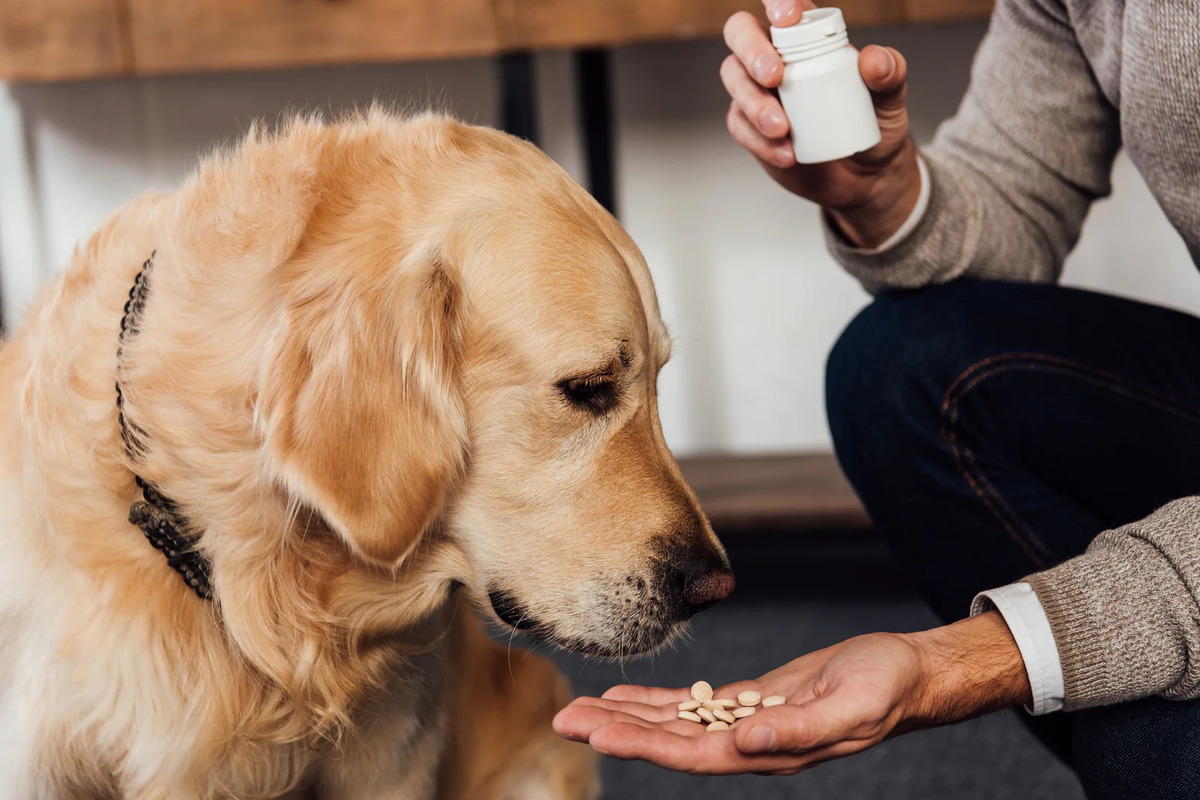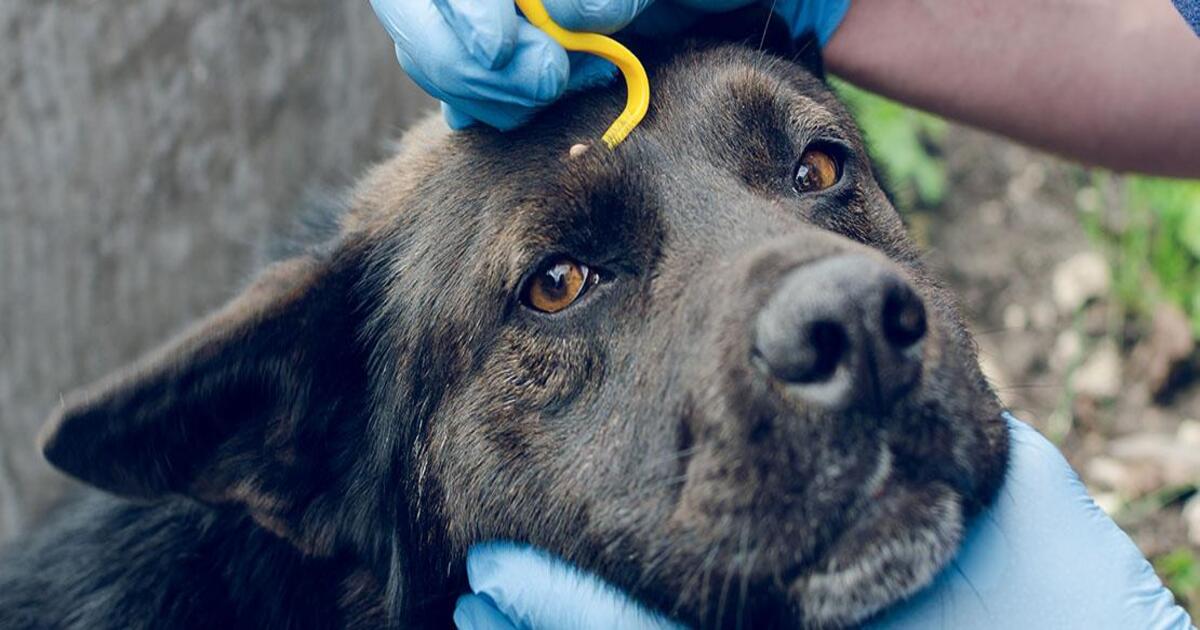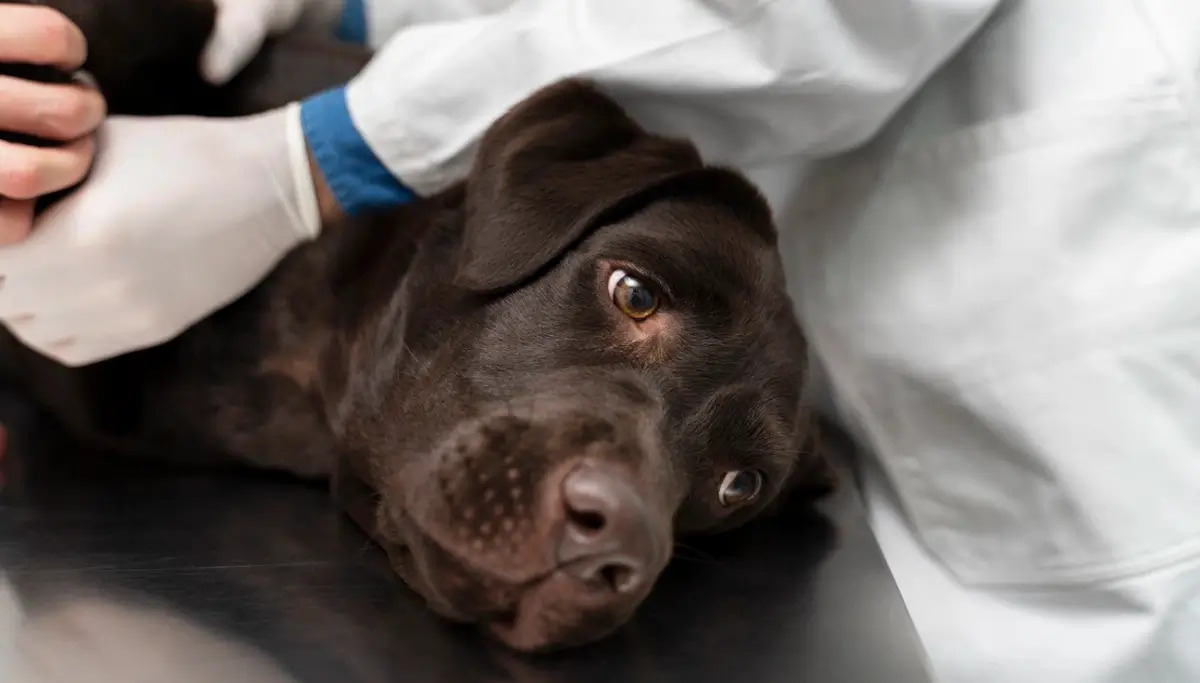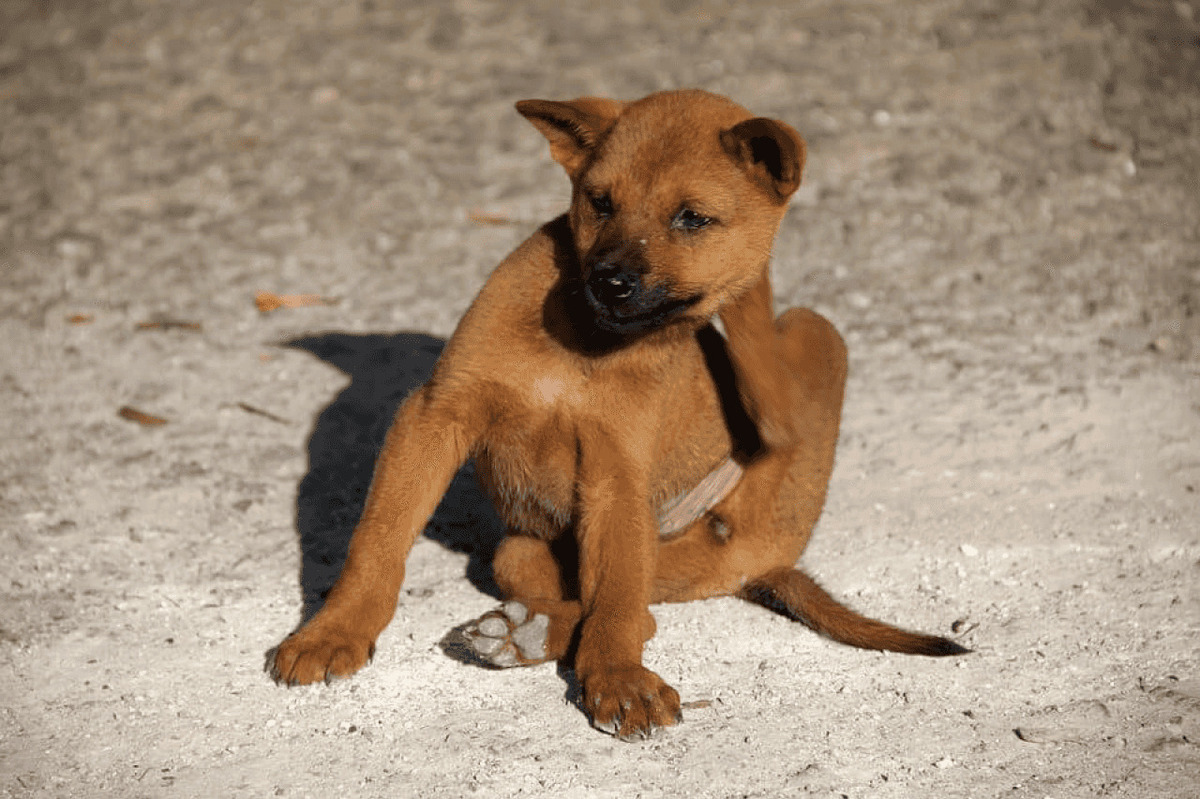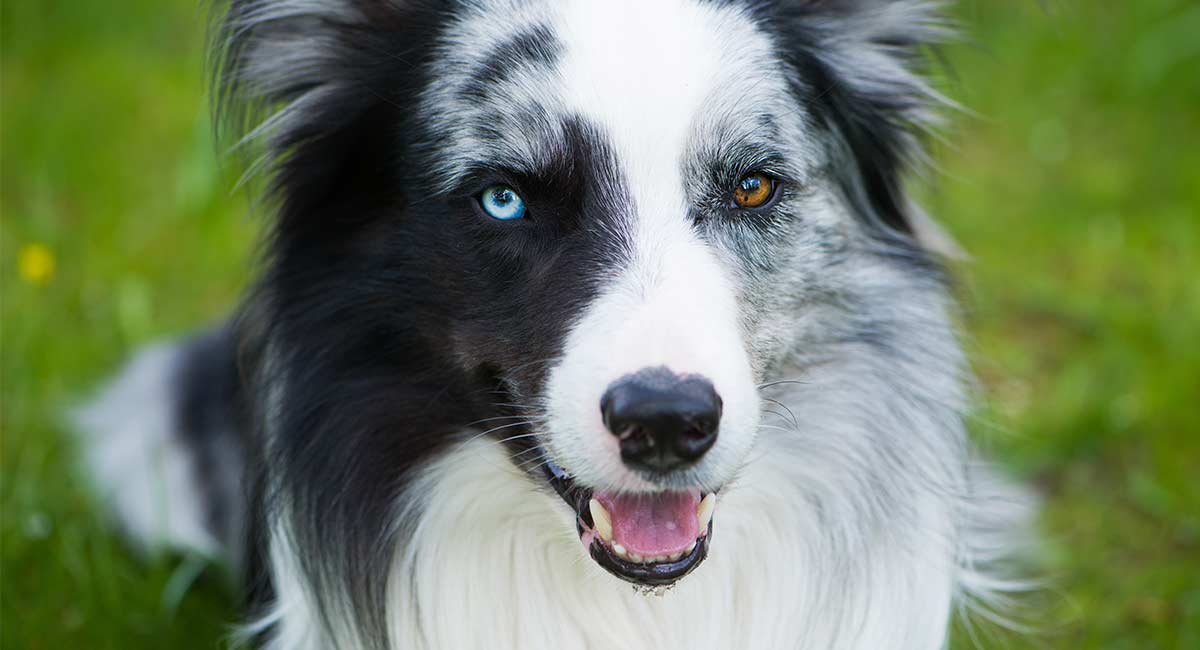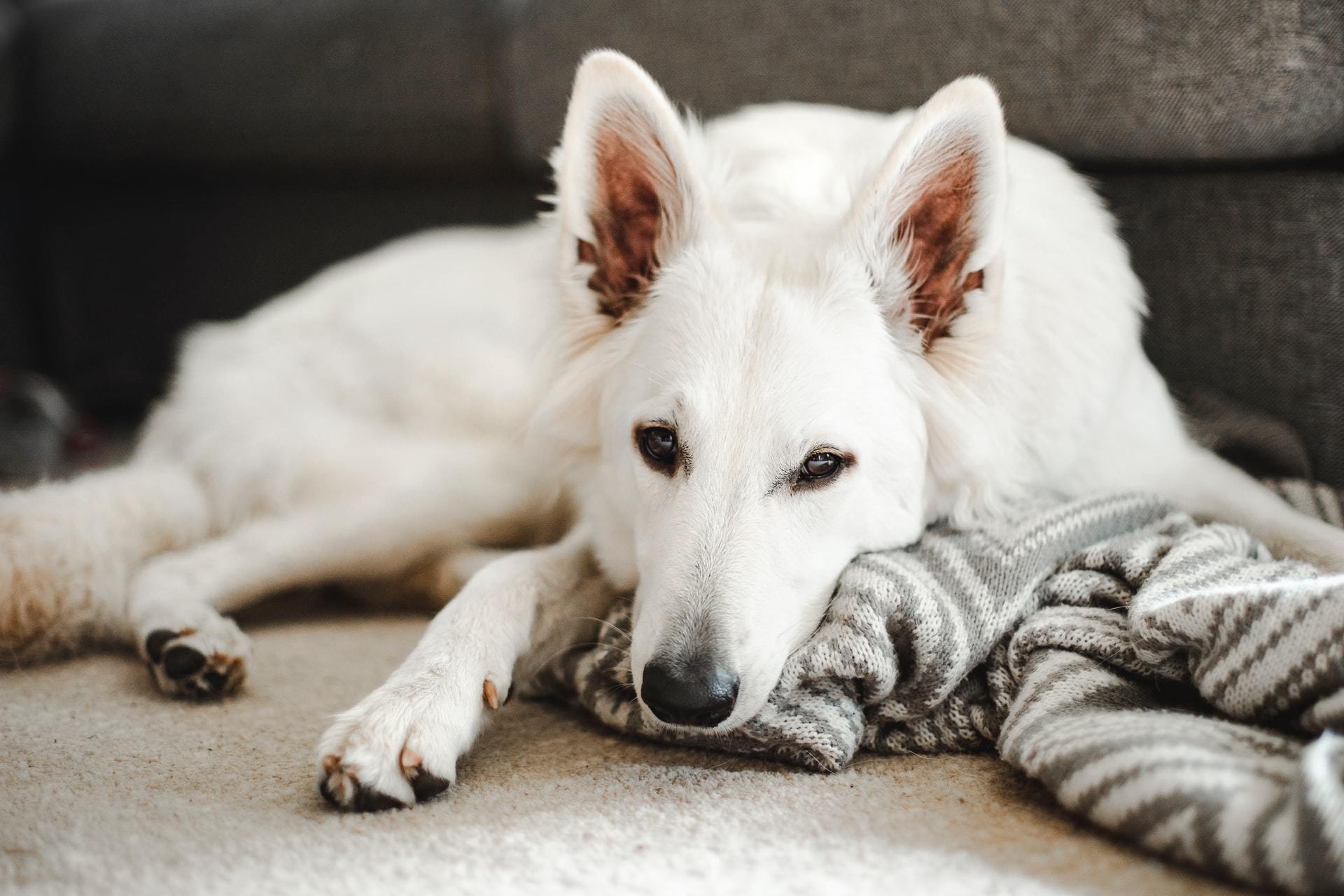Home>Health & Wellness>Common Health Issues>What To Do When A Dog Has An Allergic Reaction To Food
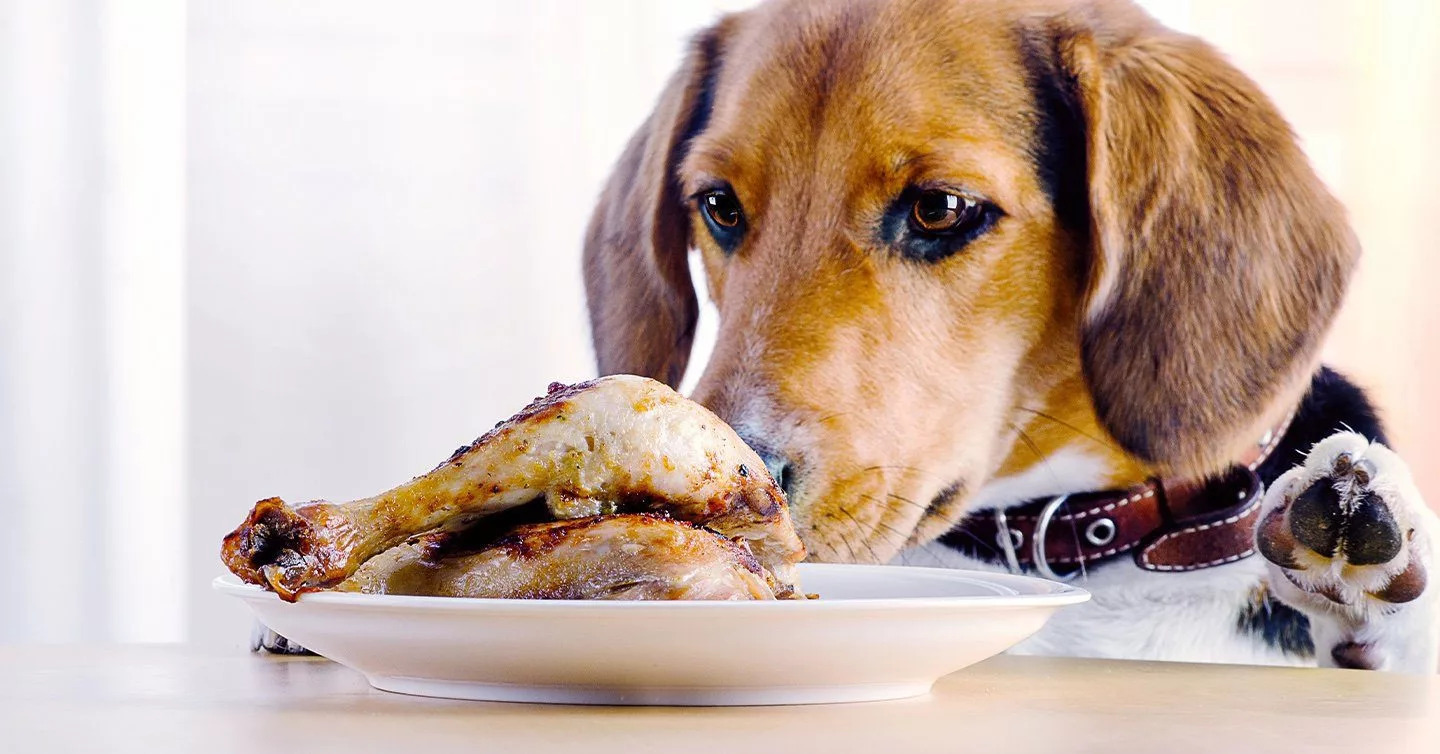

Common Health Issues
What To Do When A Dog Has An Allergic Reaction To Food
Modified: February 21, 2024
Learn how to recognize and manage a dog's allergic reaction to food, one of the common health issues that can affect your pet. Discover the steps to take to ensure your dog's well-being.
(Many of the links in this article redirect to a specific reviewed product. Your purchase of these products through affiliate links helps to generate commission for Pawsomeoldies.com, at no extra cost. Learn more)
Table of Contents
Introduction
When it comes to our furry companions, ensuring their well-being is a top priority. Just like humans, dogs can experience allergic reactions, and one common trigger is food. An allergic reaction to food can cause discomfort and distress for our canine friends, making it essential for pet owners to be well-informed and prepared to address such situations.
Understanding the signs of an allergic reaction and knowing how to respond can make a significant difference in your dog's health and happiness. In this comprehensive guide, we will delve into the intricacies of allergic reactions in dogs, particularly those related to food. By gaining insight into the symptoms and learning the appropriate steps to take, you can be better equipped to handle a potential allergic reaction in your beloved pet.
It's important to note that while this guide provides valuable information, seeking professional veterinary care is crucial in addressing your dog's health concerns. By being proactive and knowledgeable, you can play a pivotal role in safeguarding your dog's well-being and ensuring they lead a comfortable and fulfilling life. Let's embark on this enlightening journey to understand and address allergic reactions in dogs, particularly those stemming from food-related triggers.
Understanding Allergic Reactions in Dogs
Allergic reactions in dogs occur when their immune systems overreact to specific substances, known as allergens, present in their environment or diet. When a dog ingests a food item to which they are allergic, their immune system perceives it as a threat and mounts a defensive response, triggering an allergic reaction. The most common food allergens for dogs include proteins such as beef, chicken, dairy, and grains like wheat and corn.
The immune system's response to these allergens involves the release of histamines and other chemicals, leading to various symptoms. It's important to note that food intolerances, which do not involve the immune system, are different from food allergies. While food intolerances may cause digestive issues, food allergies prompt an immune system response, resulting in a broader range of symptoms.
Understanding the distinction between food allergies and intolerances is crucial in effectively managing a dog's health. Allergic reactions in dogs can manifest in diverse ways, including skin issues like itching, redness, and hives, gastrointestinal problems such as vomiting and diarrhea, and respiratory symptoms like sneezing and coughing. In severe cases, dogs may experience anaphylaxis, a life-threatening allergic reaction that necessitates immediate medical attention.
It's important to recognize that allergic reactions can develop over time, meaning a dog may not display symptoms until they have been exposed to a particular allergen multiple times. Additionally, genetics can play a role in predisposing certain breeds to food allergies. By comprehending the underlying mechanisms of allergic reactions in dogs, pet owners can be better equipped to identify potential triggers and take proactive measures to safeguard their pet's well-being.
In the next section, we will delve into the specific symptoms that indicate a food allergy in dogs, empowering pet owners to promptly recognize and address potential allergic reactions in their beloved companions.
Identifying Symptoms of Food Allergies in Dogs
Recognizing the symptoms of food allergies in dogs is pivotal in addressing potential allergic reactions and ensuring the well-being of our beloved pets. While the manifestations of food allergies can vary among individual dogs, several common symptoms serve as crucial indicators of a potential allergic reaction to food.
Skin Issues
One of the primary signs of a food allergy in dogs is skin-related problems. These may include persistent itching, redness, and inflammation, often leading to the development of hot spots or skin infections. Dogs may excessively scratch, bite, or lick their paws, abdomen, or other body parts, indicating discomfort and potential allergic reactions.
Gastrointestinal Distress
Food allergies can also manifest in gastrointestinal symptoms, such as vomiting and diarrhea. These digestive issues may be accompanied by changes in stool consistency and frequency. Persistent gastrointestinal distress, particularly after consuming specific food items, can point towards a potential food allergy in dogs.
Ear Infections
Another common symptom of food allergies in dogs is recurrent ear infections. Dogs experiencing allergic reactions to certain food ingredients may display symptoms such as ear inflammation, excessive ear scratching, and the presence of discharge or odor in the ears. These signs can indicate an underlying food allergy that requires attention.
Respiratory Symptoms
In some cases, food allergies can lead to respiratory issues in dogs. Symptoms may include sneezing, coughing, and wheezing, resembling common respiratory infections. Persistent or seasonal respiratory symptoms, especially when correlated with dietary intake, can signal a potential allergic reaction to food.
Chronic Anal Itching
Dogs with food allergies may exhibit chronic anal itching, often accompanied by scooting or dragging their hindquarters along the ground. This behavior can indicate discomfort and irritation resulting from a food-related allergic reaction.
Behavioral Changes
Food allergies can also impact a dog's behavior. They may appear restless, irritable, or exhibit signs of discomfort and agitation. Changes in behavior, particularly following the consumption of specific food items, can serve as valuable indicators of potential food allergies in dogs.
By being attentive to these symptoms and promptly seeking veterinary guidance, pet owners can effectively identify and address potential food allergies in their dogs. Understanding these signs empowers pet owners to take proactive measures in safeguarding their dog's health and well-being.
Steps to Take When a Dog Has an Allergic Reaction to Food
Upon observing potential signs of an allergic reaction in your dog, particularly those related to food, it is crucial to take prompt and appropriate steps to address the situation. Here are the essential measures to consider when a dog experiences an allergic reaction to food:
-
Cease Feeding the Suspected Allergen: If you suspect that your dog is having an allergic reaction to a specific food item, immediately discontinue feeding them that particular ingredient or product. This proactive step can help prevent further exposure to the allergen, minimizing the severity of the reaction.
-
Consult a Veterinarian: Seeking professional veterinary guidance is paramount when dealing with a potential allergic reaction in your dog. Contact your veterinarian to discuss the observed symptoms and seek their expert advice on the next course of action. They can provide tailored recommendations based on your dog's health history and the severity of the allergic reaction.
-
Monitor Your Dog's Condition: While awaiting veterinary guidance, closely monitor your dog's condition. Note any changes in their symptoms, behavior, or overall well-being. This information can be valuable in providing your veterinarian with a comprehensive understanding of the situation when you seek their professional assistance.
-
Provide Comfort and Support: During an allergic reaction, your dog may experience discomfort and distress. Offer them a calm and soothing environment, providing reassurance and comfort. Minimize potential stressors and ensure they have access to water to stay hydrated.
-
Avoid Home Remedies Without Professional Advice: Refrain from administering any home remedies or over-the-counter medications without consulting your veterinarian. Unsupervised use of medications or treatments can potentially exacerbate the allergic reaction or lead to adverse effects on your dog's health.
-
Follow Veterinary Recommendations: Upon consulting with your veterinarian, adhere to their recommendations diligently. This may involve dietary changes, medication administration, or further diagnostic tests to ascertain the specific allergen triggering the reaction. Compliance with your veterinarian's guidance is crucial in effectively managing your dog's allergic reaction and promoting their recovery.
By taking these proactive steps and seeking professional veterinary care, you can effectively address an allergic reaction to food in your dog, ensuring their well-being and health are prioritized. Remember, swift and informed action can make a significant difference in managing allergic reactions and safeguarding your beloved pet's quality of life.
Seeking Veterinary Care
Seeking veterinary care is a pivotal step in addressing a dog's allergic reaction to food. When a pet exhibits symptoms indicative of a potential food allergy, consulting a veterinarian is essential for accurate diagnosis, tailored treatment, and comprehensive guidance. Veterinary professionals possess the expertise and resources to assess the dog's health, identify potential allergens, and formulate an effective management plan.
Upon contacting the veterinarian, it is crucial to provide a detailed account of the observed symptoms, including their onset, duration, and any potential triggers such as specific food items. This information equips the veterinarian with valuable insights into the dog's condition, facilitating a more precise evaluation and targeted approach to addressing the allergic reaction.
During the veterinary consultation, the veterinarian will conduct a thorough examination to assess the dog's overall health and specifically evaluate the symptoms associated with the allergic reaction. This may involve skin assessments to identify potential dermatological manifestations, gastrointestinal evaluations to discern digestive issues, and respiratory examinations to gauge any respiratory distress.
In cases where food allergies are suspected, the veterinarian may recommend diagnostic measures such as elimination diets or allergy testing to pinpoint the specific allergens triggering the dog's reaction. These diagnostic tools enable the veterinarian to formulate a tailored treatment plan, which may involve dietary modifications, allergen avoidance strategies, or, in certain instances, medication to alleviate the allergic symptoms.
Furthermore, veterinary professionals can provide invaluable guidance on preventive measures and long-term management of food allergies in dogs. They may offer insights into selecting hypoallergenic diets, identifying potential cross-contaminants in commercial pet foods, and implementing environmental adjustments to minimize allergen exposure.
By seeking veterinary care, pet owners can access expert guidance, personalized treatment plans, and ongoing support in managing their dog's allergic reaction to food. Veterinary professionals play a crucial role in ensuring the accurate diagnosis and effective management of food allergies, ultimately contributing to the well-being and quality of life of our beloved canine companions.
Preventing Future Allergic Reactions
Preventing future allergic reactions in dogs involves proactive measures aimed at minimizing exposure to potential allergens and promoting overall health and well-being. By implementing strategic approaches and adhering to preventive guidelines, pet owners can significantly reduce the likelihood of their dogs experiencing allergic reactions to food. Here are essential strategies to consider:
Selecting Hypoallergenic Diets
Opting for hypoallergenic diets can be instrumental in preventing future allergic reactions in dogs. These specialized diets are formulated to contain limited and novel protein sources, reducing the risk of triggering allergic responses. By consulting with a veterinarian, pet owners can identify suitable hypoallergenic food options tailored to their dog's specific dietary needs and potential allergens.
Read more: How To Treat An Allergic Reaction For A Dog
Ingredient Scrutiny and Allergen Avoidance
Thoroughly scrutinizing the ingredients in commercial pet foods and treats is crucial in allergen avoidance. Pet owners should carefully review product labels, identifying potential allergens such as common proteins (e.g., beef, chicken) and grains (e.g., wheat, corn). Opting for products free from known allergens or selecting novel protein sources can mitigate the risk of allergic reactions.
Controlled Introduction of New Foods
When introducing new foods into a dog's diet, a controlled and gradual approach is essential. Slowly incorporating new ingredients allows for monitoring potential adverse reactions and identifying any sensitivities. This cautious introduction can help prevent sudden allergic responses and enable pet owners to pinpoint specific allergens if adverse reactions occur.
Environmental Allergen Management
In addition to dietary considerations, managing environmental allergens can contribute to preventing allergic reactions in dogs. This may involve minimizing exposure to potential environmental triggers such as pollen, dust, and mold. Regular grooming, cleaning of living spaces, and implementing allergen-reducing measures can help create a more allergen-controlled environment for dogs.
Regular Veterinary Check-Ups
Scheduled veterinary check-ups play a vital role in preventive care for dogs prone to allergic reactions. By maintaining regular visits to the veterinarian, pet owners can receive guidance on preventive measures, dietary recommendations, and potential allergen management strategies tailored to their dog's specific health needs. Veterinary professionals can also monitor the dog's overall health and provide proactive insights into minimizing allergic triggers.
By integrating these preventive strategies into their dog's care routine, pet owners can take proactive steps to minimize the risk of future allergic reactions. Prioritizing allergen avoidance, dietary management, and environmental control can significantly contribute to promoting the well-being and comfort of dogs susceptible to food allergies. Through informed decision-making and attentive care, pet owners can play a pivotal role in safeguarding their canine companions from potential allergic triggers, fostering a healthier and happier life for their beloved pets.




